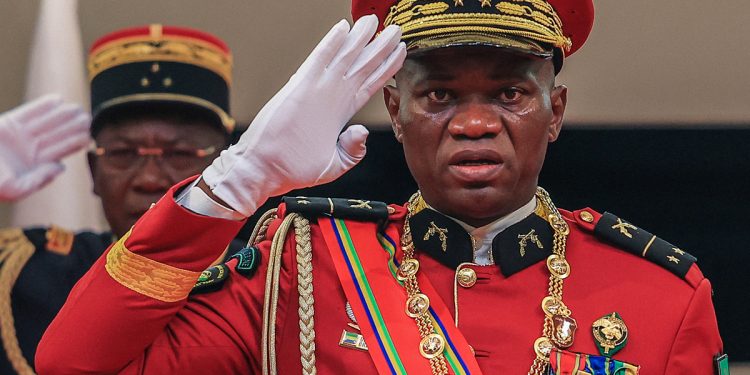Gabon is set to hold its first presidential election since a military coup in 2023, which brought an abrupt end to the Bongo family’s 56-year rule.
The election, scheduled for Saturday, is seen as a pivotal moment for the country as it seeks to move forward under a new political regime. Gabon’s military rulers, led by Brice Oligui Nguema, are hoping that the vote will solidify their power and legitimize their transition after the coup.
Nguema, who took control of Gabon in August 2023 after a bloodless coup, initially promised to return the country to civilian rule. However, he declared himself head of a transitional government and announced his candidacy for the presidency last month.
Nguema’s rise to power was part of a broader wave of coups that has affected both West and Central Africa over the past few years, undermining decades of democratic progress in the region.
Nguema’s Strong Position and Challenges Ahead
Nguema, who is widely considered the favorite to win, enjoys the advantage of being both the incumbent and a popular figure in Gabon. He has been credited with ending the unpopular rule of Ali Bongo, whose 2016 re-election sparked widespread protests, including violent riots that saw the parliament building set on fire. Nguema’s popularity grew after the coup, as many Gabonese viewed him as a leader who broke away from the entrenched Bongo regime.
His main challenger in the race is Alain Claude Bilie By Nze, a former prime minister under the Bongo government. Nze, who has created the “Together for Gabon” movement, is attempting to position himself as a reformist and distance himself from the Bongo legacy. Despite his efforts, analysts believe Nguema’s control over the country’s key institutions, including the senate, national assembly, and constitutional court, will make it difficult for any challenger to unseat him.
Economic Concerns and Promises for Change
While Nguema is expected to win, his government faces significant challenges. Gabon’s economy remains heavily dependent on oil, which has been in steady decline for years. Although the transitional government has overseen a modest economic growth rate of 2.9% in 2024, largely driven by infrastructure projects and increased production in other sectors such as timber and manganese, the country is in dire need of economic diversification.
Both Nguema and his predecessor, Ali Bongo, have promised to shift the economy away from its dependence on oil, focusing instead on agriculture, industry, and tourism. However, critics remain skeptical, pointing to the country’s long-standing economic issues and the challenges of breaking its reliance on oil exports.
Civil society activists, such as Pépecy Ogouliguendé, hope that the election will bring greater accountability and transparency to the government. “I hope the election results will lead to more transparent and accountable governance,” Ogouliguendé said. “We, the citizens, aspire to improved living conditions, particularly in education, health, and infrastructure.”
A Fragile Road Ahead for Gabon
Gabon’s future is now at a crossroads. The country, with a population of around 2.5 million, has endured years of political instability and inequality, exacerbated by the concentration of wealth among a small elite linked to the Bongo family. While Nguema’s promises of a “new” Gabon resonate with many, the road to genuine reform and sustainable development will require substantial changes beyond his electoral victory.
For now, the focus is on the election results, with Gabonese citizens hoping that this election will bring a new era of governance that can address the country’s pressing issues of poverty, economic diversification, and political transparency.









